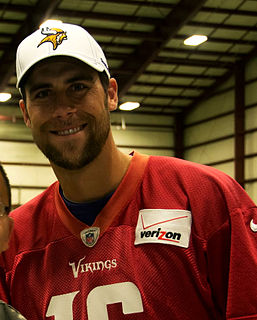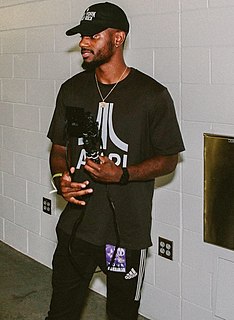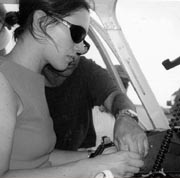A Quote by Brian Eno
Another way of working is setting deliberate constraints that aren't musical ones - like saying, "Well, this piece is going to be three minutes and nineteen seconds long and it's going to have changes here, here and here, and there's going to be a convolution of events here, and there's going to be a very fast rhythm here with a very slow moving part over the top of it." Those are the sort of visual ideas that I can draw out on graph paper. I've done a lot of film music this way.
Quote Topics
Related Quotes
I just kept going to the gym, and luckily I have a gym at home, so I just go in there probably for 30 minutes and then I go back out and then I go back in for another 30 minutes and accumulated like about three-and-a-half hours of working out a day. It was a lot. It was ridiculous. But I said I'm going to do it. I'm going to do it right.
And Paul Moravec, not being a theater person, would always trust me when I said things that I am like, "you're going to need another 10 seconds of music year to get them across the stage." But I always knew that the people were going to be coming to hear his music of which my words are going to be a part. It was clear that he wanted to go and direction A., and I wanted to go and direction B. We would've gone and direction A. That's the most important piece of advice I can give to anybody who finds themselves in an opera, or musical comedy situation like that.
I get very tense working, so I often have to get up and wander around the house. It is very bad on my stomach. I have to be mad to be working well anyway, and then I am mad about the way things are going on the page in addition. My ulcer flourishes and I have to chew lots of pills. When my work is going well, I am usually sort of sick.
If you're going to make a film, and you're going to have dialogue, and you want to take the characters seriously, let's understand what they're saying. If there is going to be technical dialogue, let's render it in a way that the audience can understand it and expect that it's not going to be so far over their heads.
I am very, very uneasy with churches that have basically said, "Well, since that's what people want and that's what sells, then were going to do our worship services like Hollywood productions. We're going to have a lot of bells and whistles. We're going to have high entertainment value, and it is going to have a lot of gloss and glitter."
As an actor, you are sort of only in charge of yourself. All you can really control is your performance. You don't know what they're going to do with it in the editing room, what they're going to cut out, which take they're going to use. You know, your control is very limited. As a director, it's ultimately your piece. You have a lot more responsibility, but you also have a lot more creative control. It's scary, but also liberating in a way.
I think some of this just feels right. You're in the shower and you come up with a sentence and it's beautiful. You don't know how it's going to fit in the film, but you put it in because it feels right. This is a very long way of saying, so much of it is me feeling like I'm catching ideas rather than coming up with ideas. It's very fluid like that.
When you get the ideas, that's a thrill; when you're writing the book and it's corning out well, that's a thrill; when you finish it and other people read it, that's a thrill. There are going to be reviews, of course; not everyone's going to love it. You feel sort of naked and vulnerable in a way. That's just a minor part of the process, really. If you can't take that part, you shouldn't be in the business. But there are so many joys to writing.
I think the films and the paintings erase each other. The paintings are extremely slow and constantly going on in the studio - they're constantly regenerating themselves in this slow, monotonous way that's a physical struggle and can be a pain in the ass. They're all based on very specific math and diagrams. And the films, when I'm making them, are very fast, very collaborative, with a lot of improvisation.




































